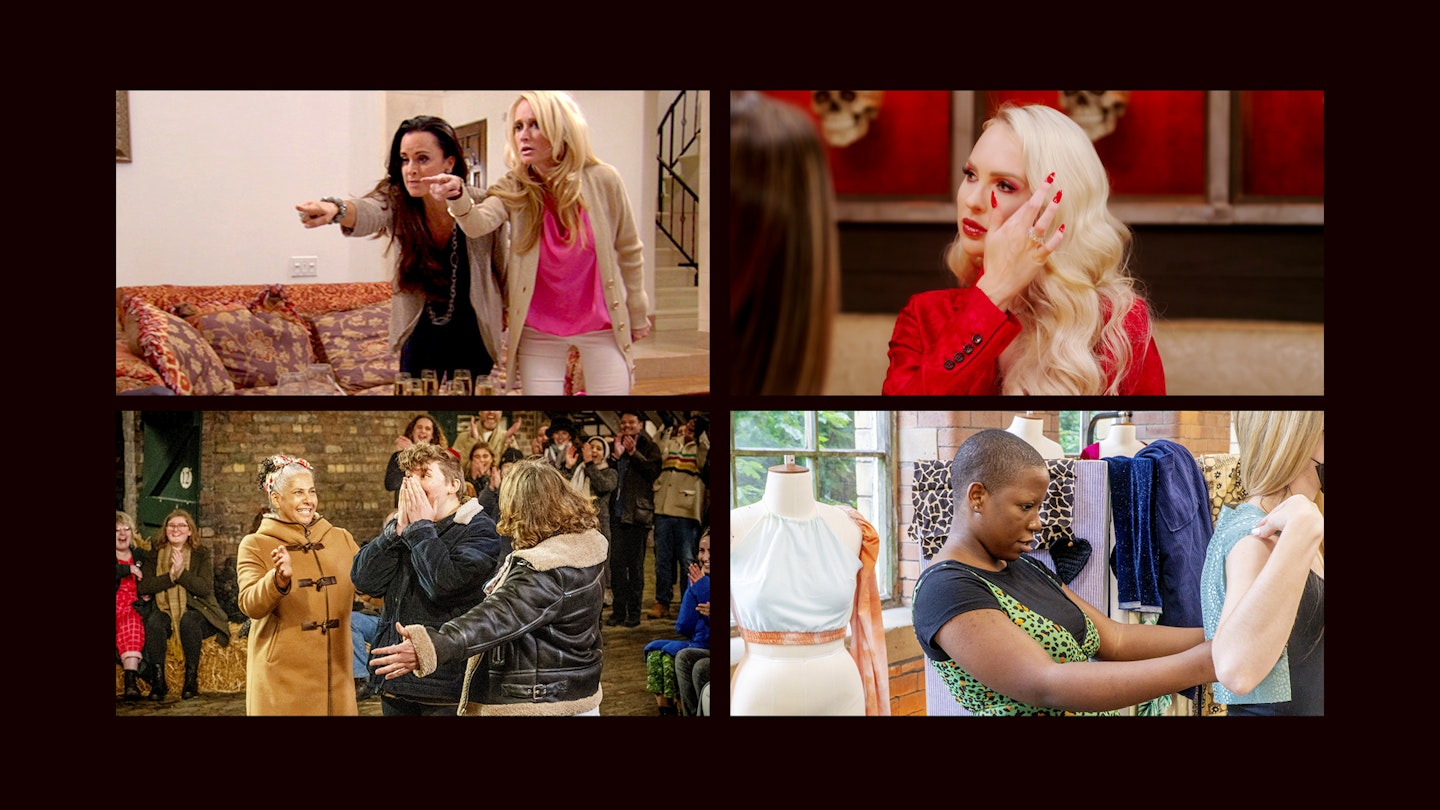Ever since reality TV’s genesis in 1971 with An American Family (which featured divorced parents and a gay son, who sadly later died of a hepatitis C and an HIV co-infection), controversy has hummed in the background. In the last few years, the rumbles have turned into roars. Kirk Norcross said that appearing on TOWIE turned him into a ‘suicidal monster’, while 2011 X Factor contestant Misha B said she suffered from PTSD after experiencing racist treatment on the show. Four people associated with Love Island, including its beloved presenter, Caroline Flack, have taken their own lives.
In order to create Unreal: A Critical History Of Reality TV, our 10-part audio documentary for BBC Radio 4, the journalist Sirin Kale and I rewatched hundreds (and I mean hundreds) of hours of television and interviewed more than 60 iconic show creators, castmates and media commentators. We wanted to trace how the format has evolved – from Big Brother’s birth of the ‘ordinary’ celebrity to the string of fast-fashion influencers from Love Island – in order to determine its larger impact on society. But our main ambition for the series was to work out, amid increasing concerns about the set-up, with whom the ethical responsibility lies. Is it with the TV commissioners, the producers, the castmates, or us – the viewers?
The contestants we spoke to argue that it is the producers who hold the power, crunching down hours of footage into three-minute narratives. The producers – such as The Hills’ Colin Nash and Selling Sunset’s Adam DiVello – counter that they are merely documenting the humans in front of them, warts and all. (As one producer notes dryly, it’s only the contestants who come across badly who complain about ‘editing’.)
Contestants are now vocal about maltreatment so the aftercare packages have been beefed up: Love Island castmates now get 14 months of support
What is clear is that while the contemporary product looks very different to how it did 20 years ago (compare Big Brother’s housemates slopping around in trackies to the Love Islanders who train for a stint in Casa Amor like it’s the Olympics), the essential ingredients have not changed: authenticity is prized the most highly; schadenfreude is best served on ice; and ‘confrontainment’ – which packages up conflict for our viewing pleasure – abounds.
So what has changed? Contestants are now vocal about maltreatment. The aftercare packages have been beefed up – Love Island castmates now get 14 months of support after they finish the show. Alongside the caterwauling of The Real Housewives, a softer, sweeter type of reality game show has emerged: Bake Off, Pottery Throw Down, The Great British Sewing Bee.
The truth is, reality TV isn’t going anywhere. It’s just too damn profitable. Despite rumours over its veracity, Selling Sunset’s new season is sitting pretty in Netflix’s top 10, and Love Island returns next month for its eighth season. The Kardashians are back on Hulu with a nine-figure pay cheque and full editing rights. They have breached the divide to become both castmate and producer. Reality television is more than just a paperchain of daft vignettes. It is a diamanté-studded megalodon that has belched out thousands of ‘celetoids’ (short-lived celebrities), who move through an ecosystem of TV shows, renegotiating the way we consider celebrity and fame. And, loathe them or love them, they’re here to stay.
‘Unreal: A Critical History Of Reality TV’ is available as a box set on BBC Sounds
